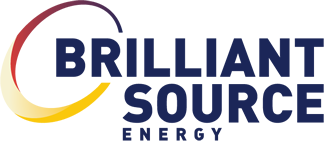Climate change is a pressing concern that many around the world are taking note of. In response, new laws are being introduced to limit carbon emissions, a process known as decarbonization. As this landscape evolves, nuclear energy, a form of power that doesn’t produce carbon emissions, is gaining attention. For businesses, this shift opens up an intriguing possibility. They can now invest in Emission Free Energy Credits, particularly those linked to nuclear power, as a way to align with these emerging environmental norms and reach their sustainability goals. We’re going to walk you through the relationship between decarbonization legislation and nuclear energy and explore why carbon offsets may be your ideal solution. So, stay with us as we delve into the increasingly relevant sphere of nuclear energy in the context of a world gradually shifting towards reduced carbon emissions.
The Benefits of Nuclear Power
Nuclear power is quickly gaining recognition as a pivotal player in efforts to reduce carbon emissions. The unique attributes of nuclear power plants make them particularly suited to this endeavor. These facilities are capable of generating a steady supply of low-carbon electricity, which can play a significant part in lowering overall carbon emissions. One key advantage of nuclear power is its status as a ‘baseload’ power source. In essence, this means nuclear power plants can generate electricity continuously, around the clock. Unlike some forms of renewable energy, which are dependent on environmental conditions like sunlight or wind, nuclear power offers a constant, reliable stream of energy. This reliability further strengthens nuclear power’s position in the pursuit of decarbonization.
Decarbonization legislation plays a key role in supporting this shift towards cleaner energy sources. Examples of such legislation include the Inflation Reduction Act and the H.R. 1512 CLEAN Futures Act. Both are geared towards promoting the use of clean power sources, such as nuclear energy. They provide a framework that encourages industries to pivot away from high carbon-emitting sources, reinforcing the adoption of low-carbon alternatives like nuclear power.
Decarbonization Legislation Supporting Nuclear Power
The H.R. 1512 CLEAN Futures Act serves as a blueprint for a more sustainable future. It establishes ambitious targets for reducing greenhouse gas emissions in the United States, with an interim goal of at least a 50% reduction from 2005 levels by 2030 and an ultimate aim of net-zero emissions by 2050. To ensure compliance, the Act stipulates that from 2023 onwards, retail electricity suppliers must gradually increase their provision of zero-emission electricity, with a target of reaching 100% by 2035. One notable provision allows these suppliers to demonstrate compliance by buying credits under a trading program, offering flexibility in their transition to greener energy sources.
For the nuclear power sector, this Act is a game changer. It clearly recognizes and encourages the use of advanced nuclear power technologies as a crucial component of the zero-emission electricity mandate. Given nuclear power’s ability to provide reliable, carbon-free energy, this legislation bolsters the role of nuclear energy in the nation’s decarbonization strategy. As such, the H.R. 1512 CLEAN Futures Act positions nuclear energy as a cornerstone in the transition towards a more sustainable, carbon-neutral future.
Our Carbon Offset Solutions
At Brilliant Source Energy, we’re ready to assist you in taking your next steps toward a carbon-free future. Our carbon offset solutions, powered by around-the-clock nuclear generation, provide an effective and reliable pathway for businesses to meet their Environmental, Social, and Governance (ESG) and carbon neutrality targets. By selecting the appropriate carbon offset program for your organization, not only can you significantly reduce your carbon footprint, but you can also contribute to advancing a clean energy future globally. So, don’t hesitate to reach out to us and explore the range of options available to help your organization reach its goals.
Contact us
"*" indicates required fields





